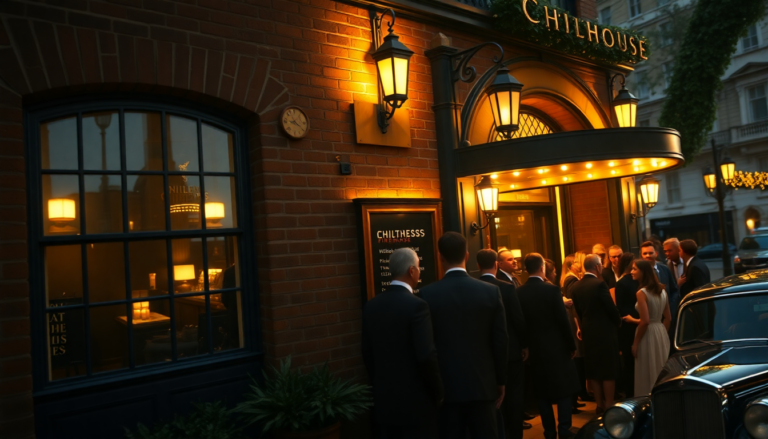Argomenti trattati
In a surprising turn of events, London is emerging as the new darling of the film and television industry, overshadowing traditional hotspots like Hollywood. A recent incident at the Chiltern Firehouse, a luxury hotel in London, highlighted this shift when a fire broke out just before a high-profile Netflix BAFTA awards party. While the flames caused a stir, they also underscored the influx of A-list celebrities from Los Angeles who are now frequenting the British capital. As production dynamics change, the allure of London continues to grow, drawing filmmakers and stars alike.
The changing landscape of film production
Hollywood’s golden age seems to be dwindling as various factors contribute to its decline. While the U.S. film industry has suffered a remarkable 40% drop in production since pre-pandemic levels, London is witnessing a boom. In 2024, an estimated £9.5 billion ($12.7 billion) is projected to be invested in the city’s entertainment sector over the next five years. The British Film Institute reports a staggering £5.6 billion ($7.4 billion) in production revenue for 2024, indicating a robust 31% increase compared to the previous year. As studios like Pinewood remain fully booked and major streaming platforms expand their U.K. offices, the shift is palpable.
Tax incentives and production facilities
One of the key factors fueling this migration is the generous tax incentives offered in the U.K. Film and TV producers can benefit from up to a 40% reduction on their final production costs, along with additional credits for visual effects and independent films. These incentives make filming in London more financially viable compared to other locations, including Australia and Spain. With major studios and state-of-the-art facilities like Shinfield Studios, boasting nearly 1 million square feet of space, London is not just a cheaper option; it’s a well-equipped one.
Hollywood’s loss is London’s gain
As Hollywood grapples with budget cuts and production halts, the geographical and infrastructural advantages of London are becoming increasingly apparent. The city’s proximity to diverse filming locations, such as the scenic Welsh countryside and the breathtaking Scottish Highlands, makes it a strategic base for international productions. Moreover, the established workforce and experienced crews are vital for maintaining production quality. For many Hollywood producers, relocating to London offers a chance to continue their work without the logistical headaches associated with shooting in more remote locations.
The cultural shift
The political and social climate in the U.K. also plays a significant role in attracting talent. Many creatives are seeking refuge from the divisive atmosphere in the U.S., particularly given the impact of Trump’s policies. The U.K. embodies a more progressive environment, making it appealing to artists who value inclusivity and diversity. In fact, some Hollywood figures have relocated to London primarily due to concerns over the political landscape in their home country. The Global Talent visa program, designed for top-tier talent, further simplifies the process of moving to the U.K., providing a welcoming path for those seeking new opportunities.
The future of filming in London
As the entertainment industry continues to evolve, London stands poised to retain its newly acquired status as a primary filming location. The combination of financial incentives, cultural acceptance, and world-class facilities creates an attractive package for filmmakers. With a growing number of major productions being shot in the capital, it is evident that the British film industry is not only thriving but is also becoming a beacon of creativity and innovation in the global landscape.
Iconic productions and their impact
London has long been a backdrop for some of cinema’s most iconic films. The city’s rich history and vibrant culture offer a unique setting that enhances storytelling. Productions like the Star Wars franchise and the James Bond series have roots deeply embedded in the U.K., contributing to both the local economy and the global film narrative. These projects not only bolster the financial landscape but also foster a sense of community among local talent and crews, ensuring that the legacy of filmmaking continues to thrive.
Conclusion
While Hollywood may have once held an unchallenged reign over the film industry, London’s rise as a formidable competitor signifies a monumental shift. With the entertainment landscape continually changing, it’s clear that the U.K. is not only ready to embrace this challenge but is also poised to redefine the future of film and television production on a global scale. As we look ahead, the combination of creative talent, financial incentives, and cultural richness will undoubtedly solidify London’s position as a new favorite among filmmakers and stars alike.

